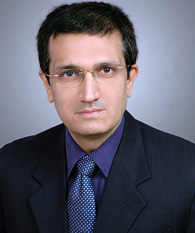The presence of dark circles under eyes is a problem to many. They can make the face appear tired, stressed, and older than its years. In the majority of cases, the majority of people believe that the formation of black circles beneath the eyes can be attributed to both a lack of sleep and stress. Still, the cause might actually be something else: a deficiency in one or more of the vitamins your body needs to function at its best.
If your dark circles remain even with adequate sleep or skincare, diet may be what’s missing. In this post, we’ll examine the reasons behind those, the part deficiencies play, and also simple corrections you can implement.
Understanding Dark Circles
What Are Dark Circles Under Eyes?
The gloomy areas that appear under the eyes are referred to as dark circles. The skin that covers our eyelids is extremely thin, which is the reason why this happens. And as blood vessels become visible, you see a darkening in the area. Lack of oxygen and poor skin support can make this a fact much more apparent.
Common Causes of Dark Circles Under eyes Beyond Deficiencies
A lack of sleep is not the only cause for dark circles. Other common reasons include:
- Genetics:Some folks are born with darker under-eye skin.
- Aging:There is a correlation between the process of ageing and the skin being thinner, which in turn leads veins to become more clearly visible.
- Not enough sleep: If you don’t get good rest, these shadows under your eyeswill appear darker.
- Dehydration:A lack of water will remove the glow from your skin.
- Stress:Both mental and physical tiredness can make hyperpigmentation worse.
Nutritional Deficiencies Linked to Dark Circles
Iron Deficiency
The delivery of oxygen throughout the bloodstream requires iron, which is a nutrient that is needed for this process. The skin appears pale, and under-eye veins are more pronounced. This is why the dark circles of someone with iron-deficiency anemia look darker and more pronounced.
Vitamin B12 Deficiency
The scarcity of Vitamin B12. They are the ones involved in the health and circulation of red blood cells. The region behind the eyes might take on a bluish or greyish appearance when there is insufficient blood flow to the area. If you are tired and have dark circles, B12 might be to blame.
Vitamin K Deficiency
Vitamin K is involved in the normal clotting of blood. Blood can collect in small vessels under the skin due to Vitamin K deficiency and can form visible shadows or broken capillaries. This appears most commonly under the eye area, which is super delicate.
Vitamin C Deficiency
Vitamin C helps stimulate collagen, which helps keep skin firm and elastic. A shortage in vitamin C causes the skin beneath the eyes to become thin and sensitive, which makes discoloration more noticeable.
2.5 Other Micronutrients
- Dark ringscan also get worse if your body is missing out on:
- Zinc, which repairs skin and combats damage.
- Folate, which is good for healthy blood.
3. How to Tell If a Deficiency Is Responsible for Your Dark Circles
3.1 Symptoms to Watch For
The following features may also accompany deficiency-caused dark circles:
- Constant tiredness or weakness
- Pale or dull skin
- Hair loss or brittle nails
- Frequent colds or infections
3.2 Tests That Can Aid in the Diagnosis
If you’re concerned you may have a deficiency, a doctor can do so by running:
- Blood tests for iron levels
- Vitamin B12, Vitamin D, and folate tests
- Basic nutrient panels to eliminate stealth deficiencies
4. Diet Remedies to Get Rid of Dark Circles Due to Deficiency
What you eat may, in fact, affect nutrient levels and dark circles over time.
Iron-Rich Foods
Include foods like spinach, red meat, lentils, and beans in your daily diet. These spikey iron boosters are helping the skin look healthier.
Vitamin B12 Sources
Vitamin B12 is found in eggs, fish, milk, and fortified cereals. (An important note for vegetarians, for whom deficiency is most common.)
Vitamin K & C Rich Foods
Include foods that are high in vitamin K, such as kale and broccoli, and foods that are high in vitamin C, such as citrus fruits, strawberries, and bell peppers. These vitamins work together to fortify skin and diminish discoloration.
Supplements: When to Consider
If diet alone won’t solve the problem, you may need supplements. As always, you should consult with a doctor before taking supplements of iron (or Vitamin B12 or Vitamin C) because you can overdose your body, as well.
Tips for Healthy Under-Eye Skin from Your Lifestyle
Diet alone won’t solve everything. Healthy habits are equally important.
- Prioritize 7–8 hours of sleep each night.
- Stay well hydrated by drinking lots of water.
- Apply sunscreen to protect against the sun.
- Use a brightening vitamin C or a retinol eye cream.
Do yoga, meditation, or other relaxation exercises to keep stress at bay.
6. When to See a Dermatologist
If you have hound puppy eyes that just don’t improve even with a better diet or trying to sleep more, and it’s affecting your confidence and how you feel about yourself, see a dermatologist for Dark circles under eyes. And, of course, persistent under-eye shadows may be an indication of something more serious, such as thyroid disease, anemia, or other health problems that require medical treatment.
Frequently Asked Questions
Q. Does iron deficiency really lead to dark circles under the eyes?
A: Yes. Iron deficiency limits the amount of oxygen that a blood-filled body can give, leaving skin pale and veins more vibrant than they should be. Discouraging bags can worsen the look of dark circles. And if you’re tired, woozy, or weak, it might be your iron levels.
Q: Which vitamin deficiency is associated with dark circles most of the time?
A: The most frequent ones are Vitamin B12 deficiency, which can disrupt blood flow, and Vitamin C deficiency, which can weaken collagen. Additionally, if you have a shortage in vitamin K, the blood vessels that are located under the thin skin that is located under your eyes may become more noticeable.
Q. How can I tell if my dark circles are related to a deficiency or lack of sleep?
A: If other symptoms accompany the dark circles, such as pale skin, fatigue, brittle nails, or frequent illness, they could be the result of a nutritional deficiency. Dark circles from sleep deprivation, by comparison, tend to subside once you catch some sleep. Its causative factor can be determined with a few drops of blood.
Q: Which are the food items that can get rid of deficiency-induced dark circles?
A balanced diet works best. Try:
- Foods full of iron: Spinach, lentils, red meat
- Vitamin B12 food sources:Vitamin B12 can be found in several foods, including cereals that have been fortified, fish, eggs, and dairy products
- Other vitamin C-rich foods:Oranges, bell peppers, strawberries
- Foods with vitamin K:Kale, broccoli, leafy greens
Q: When should I see a dermatologist about dark circles?
See a dermatologist if:
- Despite a good night’s rest and diet, you have dark circles
- You see other health concerns, such as hair loss, severe fatigue, or skin that is very pale
- You’re suspecting something like anemia or thyroid problems
A dermatologist can determine if your dark circles are caused by a deficiency, your lifestyle, or any medical conditions, and will recommend the appropriate treatment.
Author:
Dr. Navin Taneja – Dermatologist(New Delhi)
Thenationalskincentre
H-30, South Extension part-I,
New Delhi


